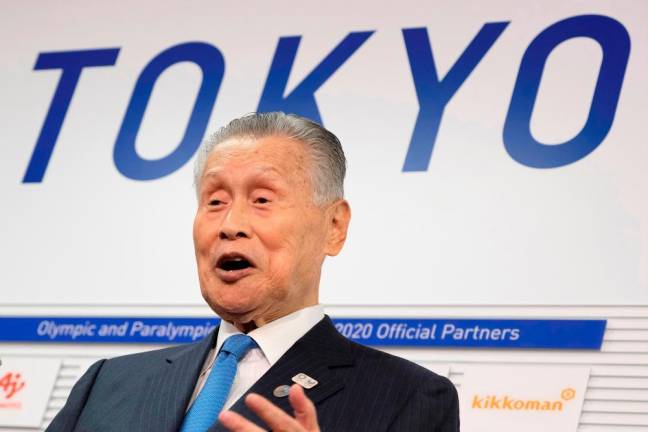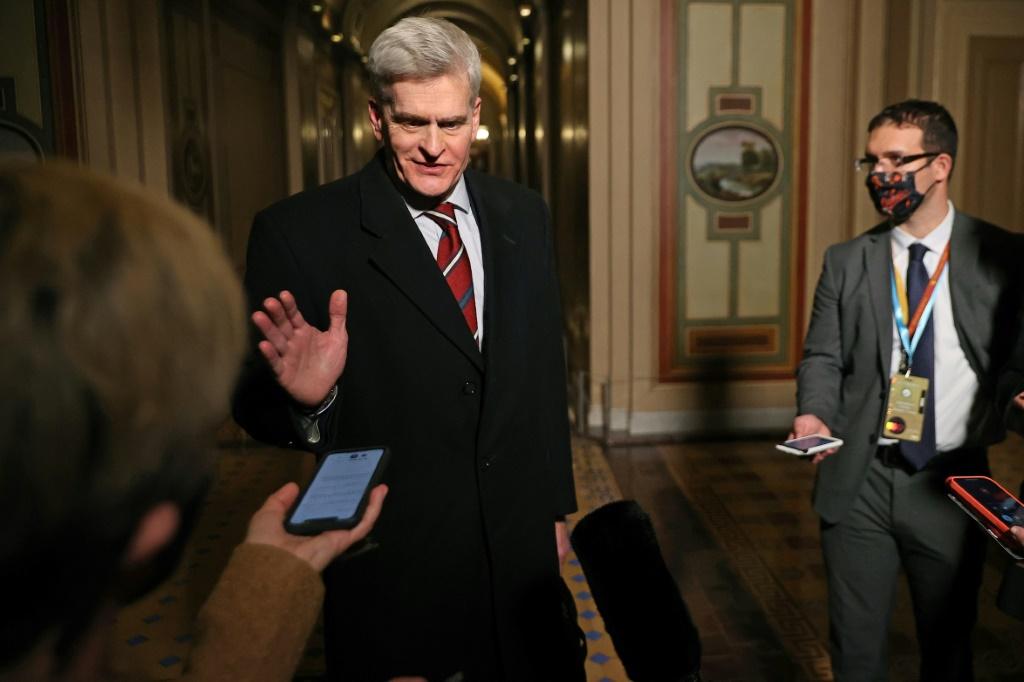Tokyo 2020 chief Yoshiro Mori bowed to mounting pressure and resigned Friday over sexist remarks, but his replacement was not immediately clear after opposition emerged to his favoured successor.
The resignation and the leadership vacuum left by the controversy add to the woes of organisers struggling to win over a sceptical public less than six months before the virus-delayed Games.
Mori, 83, sparked outrage by claiming last week that women speak too much in meetings, with officials, sports stars and Olympic sponsors slamming the remarks as inappropriate.
On Friday he announced he would step down, effective immediately.
“My inappropriate statement has caused a lot of chaos. I would like to express my sincere apologies,” he told a meeting of Tokyo 2020’s executive board and council called to discuss his remarks.
“What is important is to hold the Olympics from July. It must not be the case that my presence becomes an obstacle to that.”
There was confusion about who would succeed Mori, who had initially selected well-known sports administrator Saburo Kawabuchi, 84, to replace him.
The transition had appeared a done deal, with the former footballer granting interviews to local media describing his planned priorities in the new job.
But opposition to the selection of another octogenarian, and Mori’s control over the process, quickly mounted.
Hashtags opposing Kawabuchi’s appointment trended on Twitter in Japan, and the country’s Olympic Minister Seiko Hashimoto insisted “nothing has been decided”.
By Friday afternoon, local media reported Tokyo 2020 was under pressure to reverse the appointment and that Kawabuchi had decided to turn down the job.
Leadership vacuum
Mori’s resignation caps over a week of uproar after he told members of Japan’s Olympic Committee that women have difficulty speaking concisely, “which is annoying.”
He apologised but then defended his remarks and told reporters: “I don’t speak to women much.”
The comments drew fire at home and abroad. Several hundred Olympic volunteers have since withdrawn and a petition calling for action against him gathered nearly 150,000 signatures.
On Friday Mori said he does not “look down on women”, and had tried to amplify their voice, including the seven women on the 35-member Tokyo 2020 board.
“They hesitated to raise their hand to speak up. I even called out their name to encourage them,” he said.
Tokyo city governor Yuriko Koike, who had condemned Mori’s remarks, offered tribute after his resignation “to all the work president Mori has done”.
International Paralympic Committee president Andrew Parsons also thanked Mori and said he hoped the reaction to the comments would “be harnessed so that society places greater emphasis on diversity and inclusion.”
The race to fill Mori’s former post is now wide open, with reports suggesting Hashimoto — a former Winter and Summer Olympian and one of just two women in the cabinet — was a leading candidate.
The fallout comes with organisers already battling public doubt about holding the huge international event this summer.
Around 80 percent of Japanese polled in recent surveys back either further postponement or an outright cancellation.
Organisers have tried to quell the disquiet by releasing virus rulebooks for athletes, officials and media, including restrictions on movement and regular testing.
But with Tokyo and other regions under a virus state of emergency, doubts persist about the event’s viability.
The first Olympic test event of 2021 has already been postponed because of Japan’s strict entry rules.
Japan’s first vaccine approval is expected over the weekend, with thousands of medical workers first in line to be inoculated, likely by the end of February.
But the broader rollout will move slowly, with vaccination of the elderly not set to start until April.





